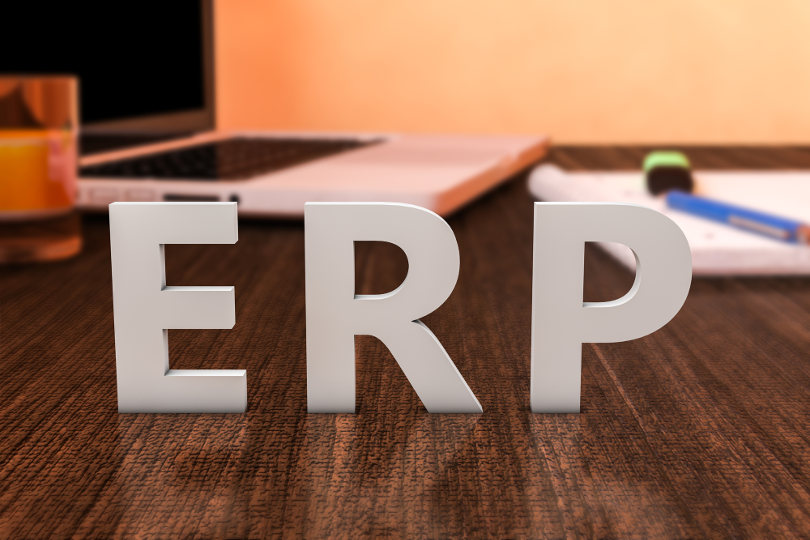Enterprise resource planning (ERP) software is a system of enterprise applications designed to integrate and manage business functions related to technology, human resources and services. ERP systems are used to create a central database to manage details related to product planning development, manufacturing, transportation, inventory, sales, marketing, and personnel.
Small to midsize businesses (SMBs), or small and medium enterprises (SMEs), are independent, non-subsidiary companies. An SMB typically employees up to 500 people. As business and data management for every industrial sector has become increasingly ubiquitous and necessary, the days of SMBs running their business by handwritten ledger have, by and large, gone the way of the rotary phone and the videotape cassette. SMBs require ERP systems to streamline their business processes – for greater efficiency.

Challenges and Pitfalls
The selection and purchase of an ERP system should be a deliberate and well-thought out process. An SMB seeking to purchase an ERP system must take several factors into consideration. One factor is budgetary constraints, as the purchase and implementation of the ERP system will entail a huge expense for any SMB.
Another factor to consider is estimating the learning curve and potential down time to your business, as the ERP installation and integration process will certainly be disruptive to your business operations for some time.
It is also important to ensure that adequate training and support will be provided and available to your employees, as they will need to learn using the system properly, without performing any workarounds, and to adopt it to perform their daily tasks.
There may also be logistical and hardware installation challenges. These may dictate limitations that may be better addressed before launching the ERP acquisition process. Below are some key points to consider:
- The ERP system that the SMB chooses must serve the company’s vertical business needs. There are different ERP systems for different vertical industries. A retail company will require an ERP system that is different from one that say a food and beverage manufacturer will require. While some basic functionality such as financials and human resources will be the same, the retailer will need retail management and master planning functionality, while the process manufacturer will require extensive process manufacturing management functionality that encompasses formulas and recipes, conformance reporting, etc.
- The ERP system must be able to support the company’s specific business needs. To do this, the company will probably need to modify the system to enable it to add and store other kinds of data, some of which may require separate encryption or other handling for legal compliance.
- One installed, the ERP system will probably have some bugs that will need to be resolved; therefore, time and resources for debugging the system must also be factored into the equation.
- The company may require backup systems during the transition period to account for anticipated data input errors, system crashes, and the like, so that crucial information does not get lost. This may be particularly relevant for accounting and cash management systems.

Selection Factors to Consider
Once a company is ready to commence approaching vendors to select an ERP system, it can send out a request-for-proposal (RFP) to different vendors that offer an ERP system suitable for the company’s vertical industry. The RFP includes a template of the information requirements for the ERP system, as well as specific requirements of the company to run its business. The vendors are required to fill out the ERP software with their level of support for the different features that the company requires. This is an effective weeding out process for those vendors who do not meet a business’ requirements.
As the company receives the completed RFPs from the vendors, it should then consider some of the following factors during the ERP selection process:
- Expansion and scalability. Is the ERP system easily scalable as the company grows, or are the company’s current requirements already approaching its limitations? If the company opens another office at a different location, can the ERP system be integrated seamlessly or are there new and different protocols. Would a different ERP product with more expansion capability be a better choice?
- Customization. Is customizing the ERP software to add additional categories in different departments as needed, something that can be done by the in-house IT team?
- On-premises or on-cloud system. Does the company need to purchase an ERP system that requires an on-premises server or one that is hosted in the cloud? If the former, at which point with any expansion or upscaling will the server specs need to change? And is migration to the cloud a possibility with the purchased on-premise system?
- Duration of implementation. The company needs to consider the length of the installation and integration process, assuming no new hardware requirements, and how disruptive all this will be to business operations. It needs to plan measures to facilitate this process and minimize disruption to business operations.
- Maintenance service contract. What kind of maintenance service contract would come with the ERP software, and can the company’s IT team work with service providers in collegial fashion to ensure the proper running of the ERP system?
- Vendor references. Is the vendor a new entity or is it established in the industry? In either case, the vendor should be able to provide references, so you can learn first-hand from a vendor’s customer about the vendor’s product and services (the latter either directly or through a partner). If the vendor is new, is there a danger that the vendor could suddenly go out of business? In this case, is there a backup provision for at least limited continued service in the event of vendor acquisition or liquidation?
- Upgrade timeline. How often will upgrades of the ERP system be released, and what is the protocol for installation?
- ERP demo. Can the vendor provide a live ERP demonstration of how its product can provide the capabilities that the company requires? The company should provide a demo script to each vendor of the processes that are important to its business. The vendor should demonstrate how its ERP system can support the business processes that the company has identified as important to running its business.
- So an ERP is not a one-size-fits-all proposition. What can work for one company will not necessarily work for all others in that same business sector. Different companies operating in the same sector have different business needs as well as different levels of information technology (IT) experience. Companies should consider this factor and the factors specified above when choosing an ERP system for their business.
Once the choices have been narrowed down, it is likely that even more factors than what have been cited here will arise and should be considered. As the selection of an ERP system is such a crucial element in the business survival of any contemporary company, it should be approached with utmost care and research before arriving at a final decision.

Consultancies, such as Technology Evaluation Centers (TEC), are available to aid companies in the software selection process. The ERP system chosen should ultimately enhance productivity and operational efficiency and thus impact the success and future of the company, so assistance with the selection of the ERP system seems like a good investment. SMBs are at a crucial point, and the choice of the right system can be instrumental in the growth and success of these companies.
